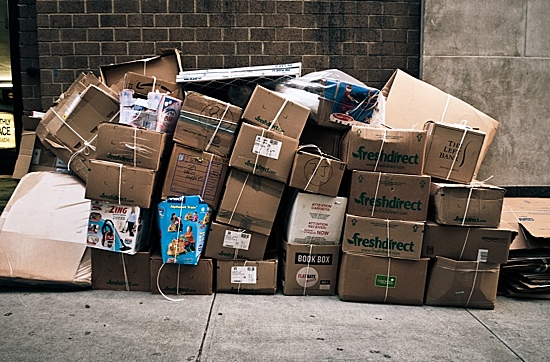What will happen to our digital collections after we die?
How will we experience our collections of “digital stuff” in the future? What will be the equivalent of climbing up into the attic and going through a dusty box of scrapbooks and photo albums?

I recently discovered that my digital life takes up approximately 500gb of space.1
I was in the middle of downloading something the other day when I got the all-too-familiar warning that my hard drive was nearing capacity. Going through my folders, I did my usual search for things to delete and found myself coming up empty. Aside from a few files here and there, I couldn’t find anything I could bear to part with. The sum of my digital collection of music, photos, videos, and documents had hit my 500 GB limit. Aside from realizing I need to figure out a better storage solution, the situation made me think about our digital collections of “stuff” and how we’ll store and access it in the future.
About a month ago, my wife and I purchased our first home. As a “housewarming gift” my parents dropped off four plastic bins filled with all the mementos and keepsakes of my childhood and teenage life: old photo albums, boy scout merit badges, school projects, baseball cards, etc. These four bins (along with a few other boxes in the basement) were the sum of my analog life collection.
As I went through the box and reminisced about old memories, I started to wonder about how we’ll experience our collections of “digital stuff” in the future knowing that they’re all stored on our hard drives and our various cloud-based services. What will be the equivalent of climbing up into the attic and going through a dusty box of scrapbooks and photo albums?
This got me thinking about future generations. My last two remaining grandparents passed away this year, and a great effort was made to make sure important photographs and documents were preserved and passed along to the right family members for safekeeping. As a history buff, I’m all too aware of things being lost to time and the diligence required to properly care for items like these. When we die, who will sort through our digital archives? How will they be passed down to future generations? Who will inherit my iTunes collection?
Futurist Ray Kurzweil talks about “transcending biology” and the idea that if we keep enough momentos and artifacts around, we could re-create virtual versions of loved ones that have passed away. I wonder if that’s true. I doubt the four plastic bins in my attic could provide enough information, but certainly the thousands of e-mails stored in my Gmail account over the past decade, every chat transcript, old voicemails, photos, and videos could probably do a decent job with the artificial intelligence we’ll likely see in the coming decades.
I don’t know how I feel about someone creating a “best guess” virtual version of me after I’m gone, but I do like the idea of some kind of AI that could make connections, organize, and determine the most important/relevant things that my future great-great grandchild could access to learn more about my life. In the meantime, though, I hope to have at least 60 more years of digital life ahead of me, so I am probably going to need to start shopping for a bigger hard drive.
— ∮∮∮ —
Footnotes
- Not counting all the things currently stored in the cloud, of course–like witty tweets, emails, and my ancient untouched Friendster profile. ↩
Photo by: Charley Lhasa
-
Recommend this
on Facebook -

Report an error
-

Subscribe to our
Weekly Digest




Notice: Comments that are not conducive to an interesting and thoughtful conversation may be removed at the editor’s discretion.
Great article. A reason to cheer for Bruce Willis when he isn’t fighting Hans Gruber in Nagatomi Tower!